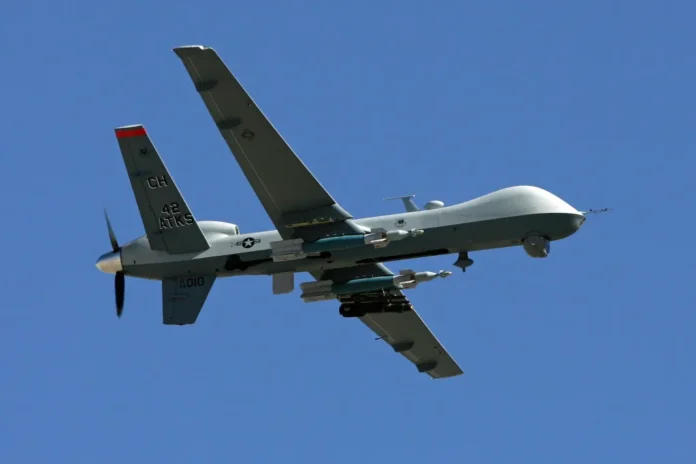A deadly drone strike hit the Penjwen district in Iraq’s Kurdistan Region. A drone targeted a motorcycle in the eastern part of al-Sulaymaniyah, killing one person and injuring another. This marked another incident in the ongoing drone attack surge troubling the area.
According to eyewitnesses, drones had been flying over the district for hours before the strike. The strike occurred in a remote part of Penjwen, where local residents live in constant fear due to recent aerial threats. Although no party has claimed responsibility for this particular attack, past patterns suggest involvement by regional powers.
In recent months, the drone attack surge has intensified near Iraq’s northeastern borders. Both Türkiye and Iran continue to carry out military operations against Kurdish opposition groups in these territories. These operations often involve drone strikes that hit civilian-populated areas or remote villages near the border.
The Penjwen district, situated close to the Iranian border, lies in a vulnerable position. Kurdish groups operating in exile often take shelter in the rugged mountains, drawing the attention of Ankara and Tehran. These cross-border campaigns frequently spark political tension in Iraq and bring destruction to otherwise peaceful communities.
Local authorities confirmed that the injured individual received medical treatment immediately after the strike. Meanwhile, emergency services secured the blast site, fearing additional attacks. Residents reported hearing the buzz of drones since early morning and remained indoors to avoid harm.
Officials in the Kurdistan Regional Government have voiced concerns about repeated violations of Iraqi airspace. They called for international support to stop these attacks. The government emphasized the need to preserve regional stability and protect civilians from external aggression.
Saturday’s incident is part of a broader pattern linked to the drone attack surge. Strikes like this one disrupt daily life and raise fears among the rural population. Livestock herders, farmers, and small traders often abandon their work during periods of high drone activity.
In response to mounting pressure, Kurdish lawmakers are urging Baghdad to take stronger diplomatic steps. They demand clear communication with neighboring countries to end cross-border violence. Yet, without a united stance or international intervention, the cycle seems likely to continue.
This recent strike underscores the dangers of unresolved regional conflicts. As tensions persist, Penjwen remains a hotspot, where the drone attack surge continues to claim lives and destabilize fragile communities.

